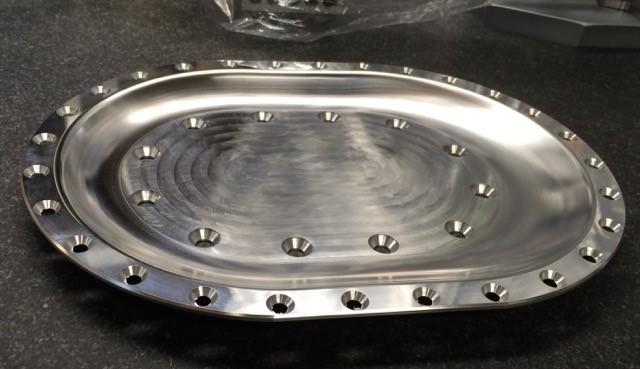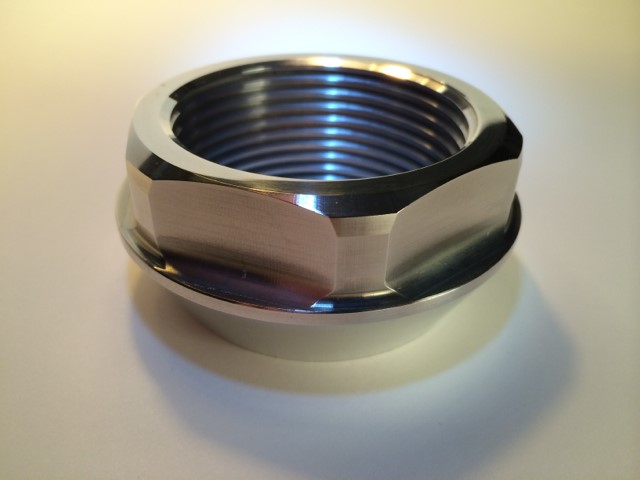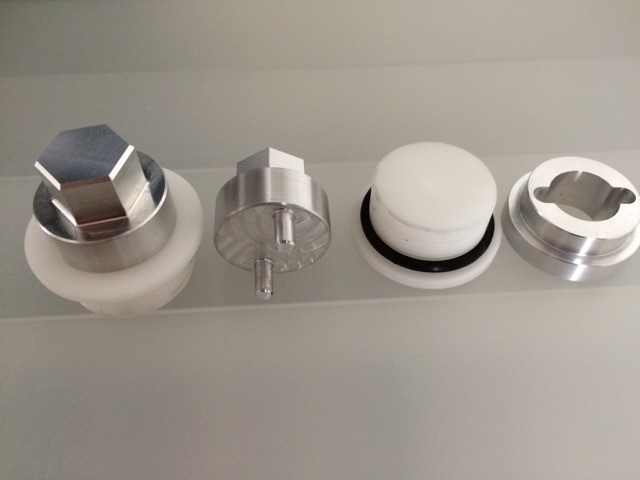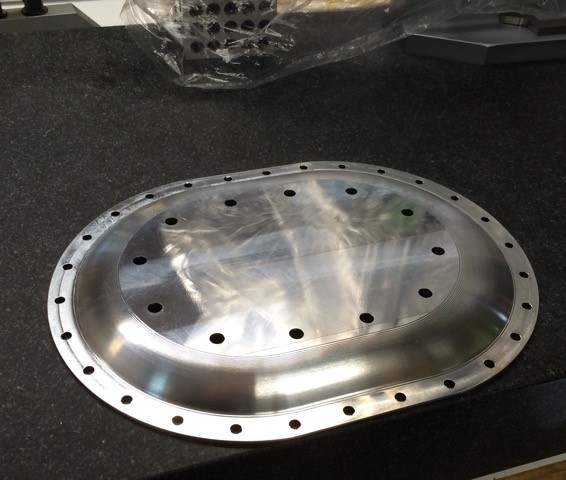There are a number of Tormach customers that use their PCNC mills to help race cars and motorcycles go faster. In fact, we have a whole customer success story section dedicated to just that. Adam Silver is a race enthusiast who fabricates vintage race car parts. Using high-performance aerospace alloys, he mills out various parts on his PCNC 1100. “I use it for whatever comes up,” he explains. Typically, both OEM and aftermarket components are made from steel or Al-6061, but Silver’s access to a PCNC 1100 allows him to use Al-7075 and titanium. “Lighter, better strength, and machinability are all good. I think this mill brings out the engineer in us. It lets us take an available aftermarket part to the next level.”
For instance, the formula car-maker for which he develops parts have large bore single nuts that are used to hold the wheel on. First impression of a component like this would imply production via a lathe, but as Silver explains, “it lends itself to being milled, using thread milling. The nuts center the wheel using a taper. After flipping the nut over and rough milling the taper, I put the nut in a fixture on the spindle, clamp a lathe tool in the milling vise, and use the Tormach as a simple vertical lathe, to get the angle on the taper dead on.”
Precision is vital in the performance auto industry, especially when dealing with vintage vehicles, but just as important is durability. Silver uses his Tormach in what he refers to as semi-abusive environments and he doesn’t worry about it holding tolerances. Whether it’s replicating broken parts or developing parts without a print, he continues to create “better than aftermarket” and customized parts on his Tormach





